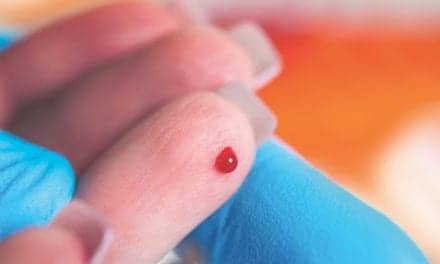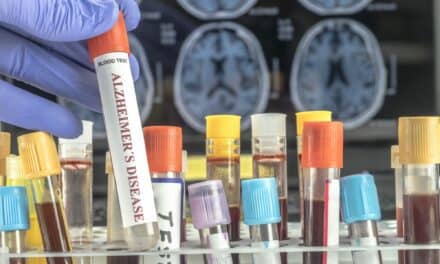C₂N Diagnostics’ PrecivityAD blood test, used by healthcare providers to determine Alzheimer’s disease (AD) pathology, has the potential to provide significant cost savings, according to a new study published in Population Health Management.
The test helps healthcare providers better determine the presence of amyloid plaques in the brain, a hallmark sign of Alzheimer’s disease, according to the company. These measurements are made from a single blood sample.
The new research, “Use of a Blood Biomarker Test Improves Economic Utility in the Evaluation of Older Patients Presenting with Cognitive Impairment,” used a budget impact model in a hypothetical 1 million-member health plan to assess the economic utility of the PrecivityAD blood test. Investigators from the University of Washington, Washington University in St. Louis, and C₂N Diagnostics contributed to this study.
The model compared two scenarios:
- baseline testing involving usual care practice; and
- early use of the PrecivityAD test over the usual diagnosis methods consisting of amyloid positron emission tomography (PET) and cerebrospinal fluid (CSF) biomarkers in these regards.
Further reading: Alzheimer’s Blood Test Identifies Cognitive Impairment with High Accuracy
At a modest 40% adoption rate, the PrecivityAD test scenario had comparable sensitivity and specificity to the usual care scenario and showed:
- net savings in the diagnostic work-up of $3.57 million or $0.30 per member per month in a 1-million-member population (11% cost savings);
- savings that translate to over $1 billion when extrapolated to the U.S. population as a whole; and
- savings that were driven by reductions in the frequency and need for PET and CSF testing.
Overall, the PrecivityAD blood test was associated with a cost savings of $643 per Alzheimer’s disease case (9% cost savings) identified.
“We believe this economic evaluation is an important way to identify the optimal strategies for diagnosing Alzheimer’s disease, which has a substantial economic burden,” says Joel Braunstein, MD, MBA, C₂N’s CEO. “Over 16 million Americans are living with cognitive impairment and they want a diagnostic evaluation to determine the cause of this disorder. The recent availability of disease-modifying therapies for Alzheimer’s disease is going to drive even more demand for such diagnostic testing. This study on economic utility adds to the broad evidence base of the PrecivityAD blood test, which demonstrates analytic validity, clinical validity and clinical utility. We believe the use of the PrecivityAD blood test in the clinical care pathway may prevent unnecessary testing, provide cost savings and reduce the burden on both patients and health plans.”





